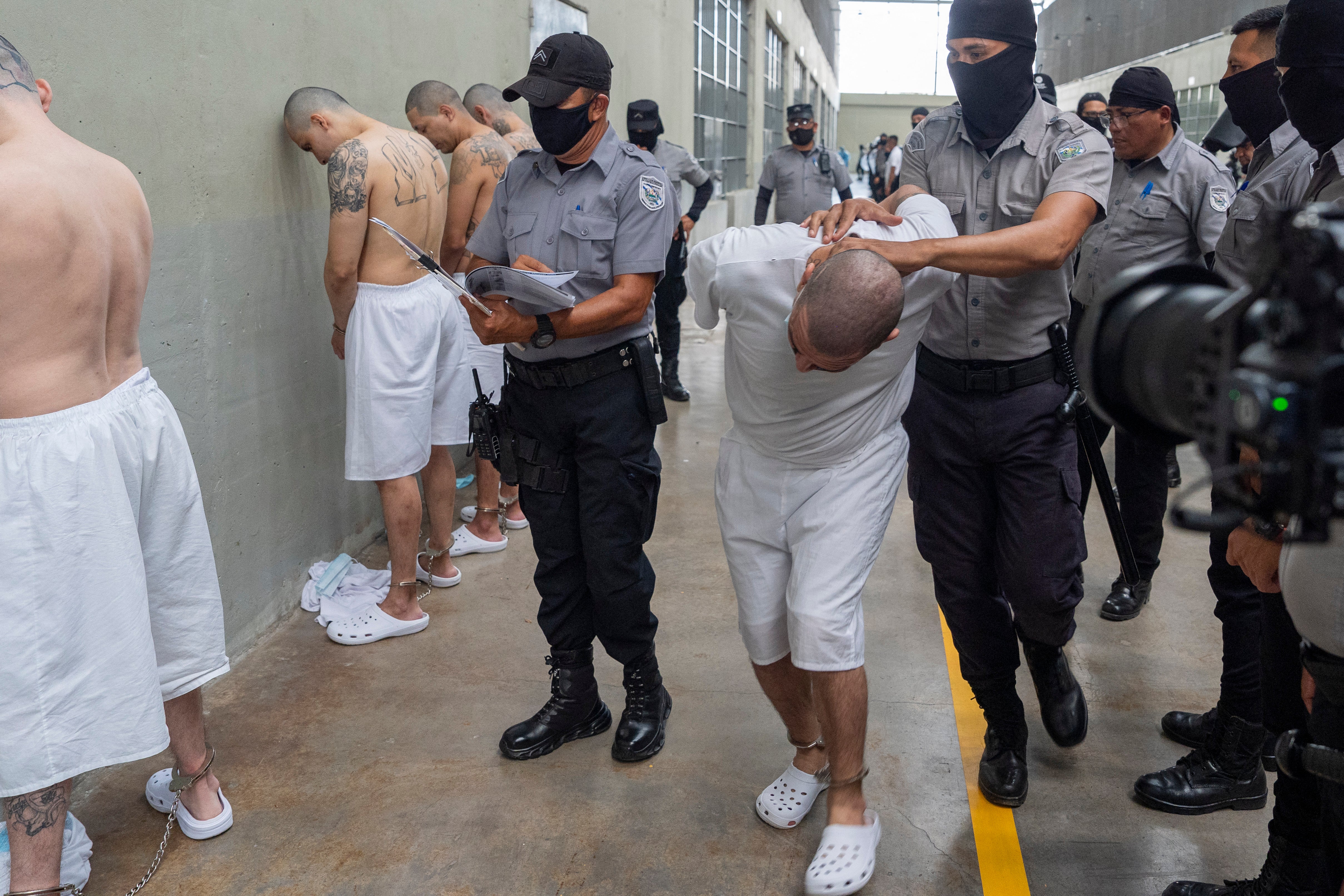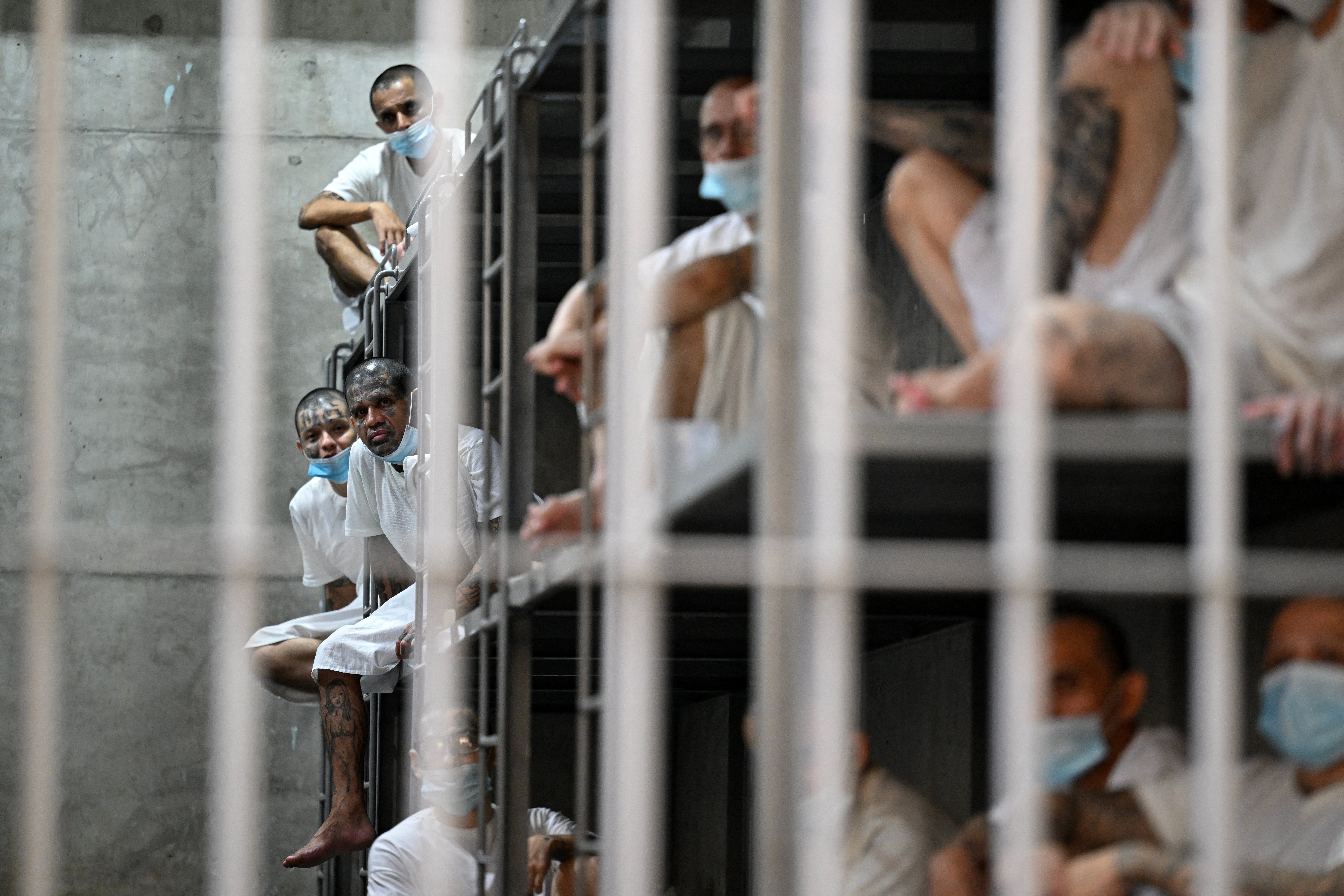Federal agents arrested Neiyerver Adrian Leon Rengel outside his apartment in Texas on his 27th birthday. Two days later, he was deported to a brutal prison in El Salvador, where he was packed in a jail cell with more than a dozen other Venezuelan men for up to 24 hours a day, for four months.
Inside El Salvador’s Terrorism Confinement Center, Rengel “endured physical, verbal and psychological abuse,” including routine beatings from guards using their fists and batons, according to his complaint to the Department of Homeland Security Thursday.
The details of Rengel’s removal from the United States, and his time spent in CECOT, constitute the first legal action against Donald Trump’s administration in the wake of a prisoner swap that the release of 250 Venezuelans from the notorious Salvadoran jail.
Rengel’s administrative claim seeks $1.3 million in damages, alleging wrongful detention and personal injury. The claim is the first step towards a lawsuit against the administration, which has faced an avalanche of legal challenges related to the summary removal of dozens of immigrants to a foreign prison where they faced the prospect of indefinite detention.
“You don’t have to be a constitutional scholar for the Rengel case to set off alarms,” according to Norm Eisen, executive chair of Democracy Defenders Fund, which filed the claim on Rengel’s behalf.

“Detaining and disappearing someone without cause or access to legal recourse is illegal and abhorrent,” he added. “This kind of conduct may be straight out of the Trump playbook on immigration, but it has nothing to do with the American Constitution or our values.”
The Independent has contacted the Department of Homeland Security for comment.
Rengel came to the U.S. in 2023 by appointment through the CBP One app, a Joe Biden-era program that allowed immigrants to schedule appointment with immigration officers before arriving at the U.S.-Mexico border.
He also applied for temporary protected status, with a pending immigration court date in 2028, according to his attorneys.
After his arrest, agents falsely claimed his tattoos were affiliated with Venezuelan street gang Tren de Aragua, which he has adamantly denied, according to the complaint. He has not been charged with any crime.
He was not allowed to challenge that “flimsy pretext for removal” under Trump’s use of the Alien Enemies Act, which labels Venezuelan “members” of Tren de Aragua “alien enemies” who can be summarily deported. Federal authorities have wide discretion to determine membership, largely by pointing to their tattoos.
Inside CECOT, Rengel was routinely beaten, and on one occasion, taken to an area of the prison without cameras where guards “viciously” attacked him, according to his complaint.
Rengel was also “forced to witness guards severely beating” other detainees, the complaint says.
CECOT guards “would turn out the light, take a detainee out of the cell, and attack them outside their cell in front of Rengel and his cellmates,” according to the complaint.

Rengel was imprisoned with 18 or 19 other Venezuelans inside a cell no larger than 10-by-10 feet, and the men were rarely allowed to leave, staying inside the cell up to 24 hours a day, the complaint says.
They shared two toilets in the cell without any privacy, and the cell was only cleaned once a week, according to Rengel.
The Red Cross visited the facility on June 12, and Rengel spoke with the group for 30 minutes — his only contact with the outside world during his imprisonment, according to the complaint.
On July 18, following trilateral negotiations with the U.S. and Salvadoran and Venezuelan governments, Rengel and more than 250 other Venezuelans jailed inside the facility were returned to their home country.
Rengel has since returned to his mother’s home in Municipio Baruta, Venezuela, and is “terrified to return to the United States given the horrendous treatment he endured,” according to his complaint.

Court orders in several cases urged administration officials to “facilitate” the return of immigrants wrongfully deported to CECOT, and the top judge in Washington, D.C., has threatened officials with contempt after defying his orders to turn the planes around in the first place.
Officials claimed for months that the United States no longer has jurisdiction over deportees that were locked up in El Salvador. But authorities in that country recently told the United Nations that the “legal responsibility for these people lie exclusively” with the U.S. government.
Attorneys for Rengel argue that his release — along with the release of dozens of other Venezuelan detainees — demonstrate that the U.S. government has always had the ability to secure their release.
“Mr. Rengel’s loved ones were cut off from contact, left with no answers, and forced to endure months of fear, confusion, and heartbreak," according to Juan Proaño, president of Latino civil rights organization LULAC, which is representing Rengel.
“While no amount of money will ever be able to make up for the deeply traumatic wounds Mr. Rengel now bears, our government has the responsibility to ensure he and his family have the resources they need as they cope,” Proaño said.

 1 day ago
4
1 day ago
4









